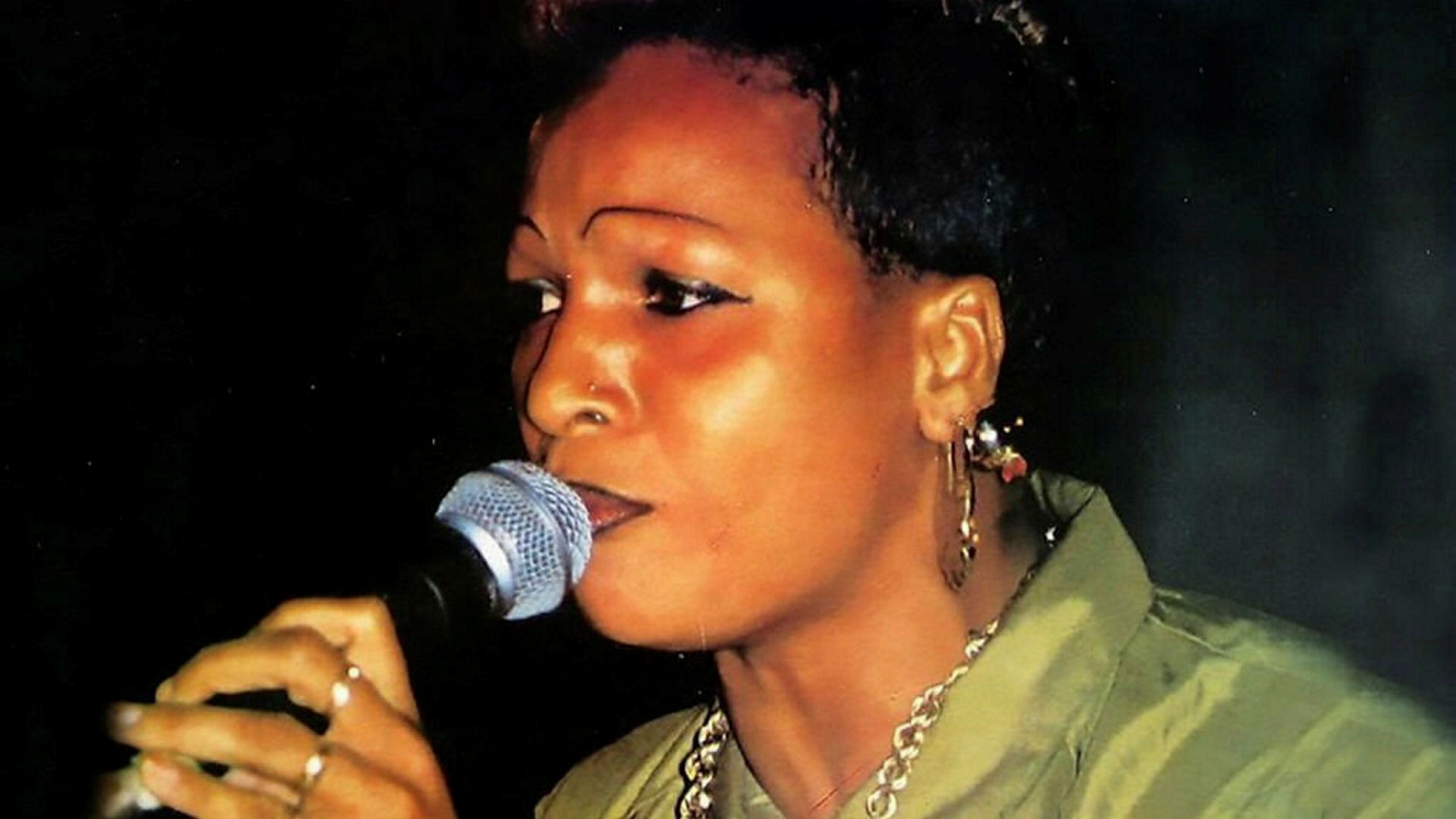Even if you don’t know Sister Nancy’s 1982 track “Bam Bam”,you know it. In recent years it has been rehashed by all three of modern music’s revered triumvirate. Kanye West chopped and screwed her catchy refrain “What a bam bam / Bam bam dilla, bam bam” on his 2016 track “Famous”. In 2017, Jay-Z bought the Jamaican artist into the studio for “Bam”,featuring Damian Marley. And Beyoncé has wheeled the song out for numerous live shows, including her history-making 2018 Coachella set when she became the first black woman to headline the festival.
“Bam Bam” is said to be the most sampled reggae song of all time, but is itself a reinterpretation of two classic Jamaican tunes. First, it borrows lyrics from a Toots and the Maytalstrack of the same name, released in 1966 — testament to the continuous dialogue that exists within Jamaican music (in fact, Sister Nancy was inspired when she heard her friend and collaborator Yellowmanrecording his own version of “Bam Bam”). Second, her signature high-pitched freestyling sails atop the “Stalag riddim” that featured on Ansell Collins’s track “Stalag 17”,which lends the track its iconic horns and bassline, and has been used by artists from Buju Banton to US rapper Too $hort. Steeped in reverb, she speak-sings about her God-given talent for MC-ing and her career goals as one of few women deejays in the genre. (The meaning of the phrase “What a bam bam” is slippery: Sister Nancy uses it to mean something along the lines of “What a ruckus.”)
Sister Nancy, born Ophlin Russell, is widely acknowledged as being the first female dancehall MC, and “Bam Bam” cemented her as a major influence in both reggae and dancehall. While the song is largely attributed to the latter genre, Sister Nancy herself associates more with the former. “The dancehall is a place that people go, it’s a venue, it can’t be a music,” she said in a 2017 interview with Fader, referring to the Jamaican dance halls from which the genre took its name. “Reggae is the whole music, not dancehall.” There is much crossover, and the terms are often used interchangeably, but she also took issue with the “slackness” (sexual lyrics) that dancehall became known for — preferring to use her music to spread positive messages about ambition, education and female empowerment.
The track was one of 10 on her debut album, One, Two, released via Techniques Records and produced by Winston Riley. It supposedly travelled to the US after Afrika Bambaataa — one of hip-hop’s founding fathers — played it in a popular New York nightclub. Later on, Lauryn Hill referenced it on her 1998 song “Lost Ones”.But, for all of the track’s wide-ranging influence, Sister Nancy didn’t earn a penny from it for 32 years.
Sampling and borrowing from other artists is commonplace in reggae/dancehall — when Chaka Demus and Pliers used Sister Nancy’s lyrics in their 1992 B-side “Bam Bam”,it would have been seen as paying homage rather than theft. But this fosters a murky legal situation, with many artists going uncredited or unpaid (it is unlikely, for example, that Toots or his bandmates were compensated for later iterations of “Bam Bam”).
According to Sister Nancy, she didn’t hear her song played once while living in Jamaica — “Transport Connection” and “One, Two” from the same album were more popular. But, after moving to the US in 1996, she realised that the track had reached more ears than she knew. Riley promised her some money after “Bam Bam” was featured in the Hype Williams film Belly. A meeting was arranged, but he didn’t show up. It wasn’t until 2014, when Sister Nancy heard the song in a Reebok advert, that she decided to take legal action. As a result, she received compensation for the previous 10 years, and obtained 50 per cent rights to the entire album.
Since then, the song has been rinsed and repeated by countless artists, including (but in absolutely no way limited to): H.E.R., Mr Eazi, Major Lazer, Logic, Amara La Negra, Kat DeLuna and Don EE, as well as being featured in Seth Rogen’s 2014 film The Interview. In 2016, Sister Nancy was able to retire from her job at a New Jersey Bank — where she had been working as an accountant for 15 years — and return to live music.
Thanks to the legal win, Sister Nancy took the stage at London’s Jazz Café in 2018, gold tooth gleaming, waist-length dreadlocks swinging as she reprised her famous tunes and reminded the audience: “Dis woman neva trouble no one / I’m a lady, I’m not a man / MC is my ambishan / I come fi nice up Jamaica.” Nearly 40 years after her iconic track was released, that ambition is finally being realised.
What are your memories of ‘Bam Bam’? Let us know in the comments section below.
‘The Life of a Song Volume 2: The fascinating stories behind 50 more of the world’s best-loved songs’, edited by David Cheal and Jan Dalley, is published by Brewer’s.
Music credits: Techniques; Roc Nation / Jay-Z; VP Records; Greensleeves Records; Techniques/Dub Store Records; Ruffhouse/Columbia; Universal-Island Records Ltd
